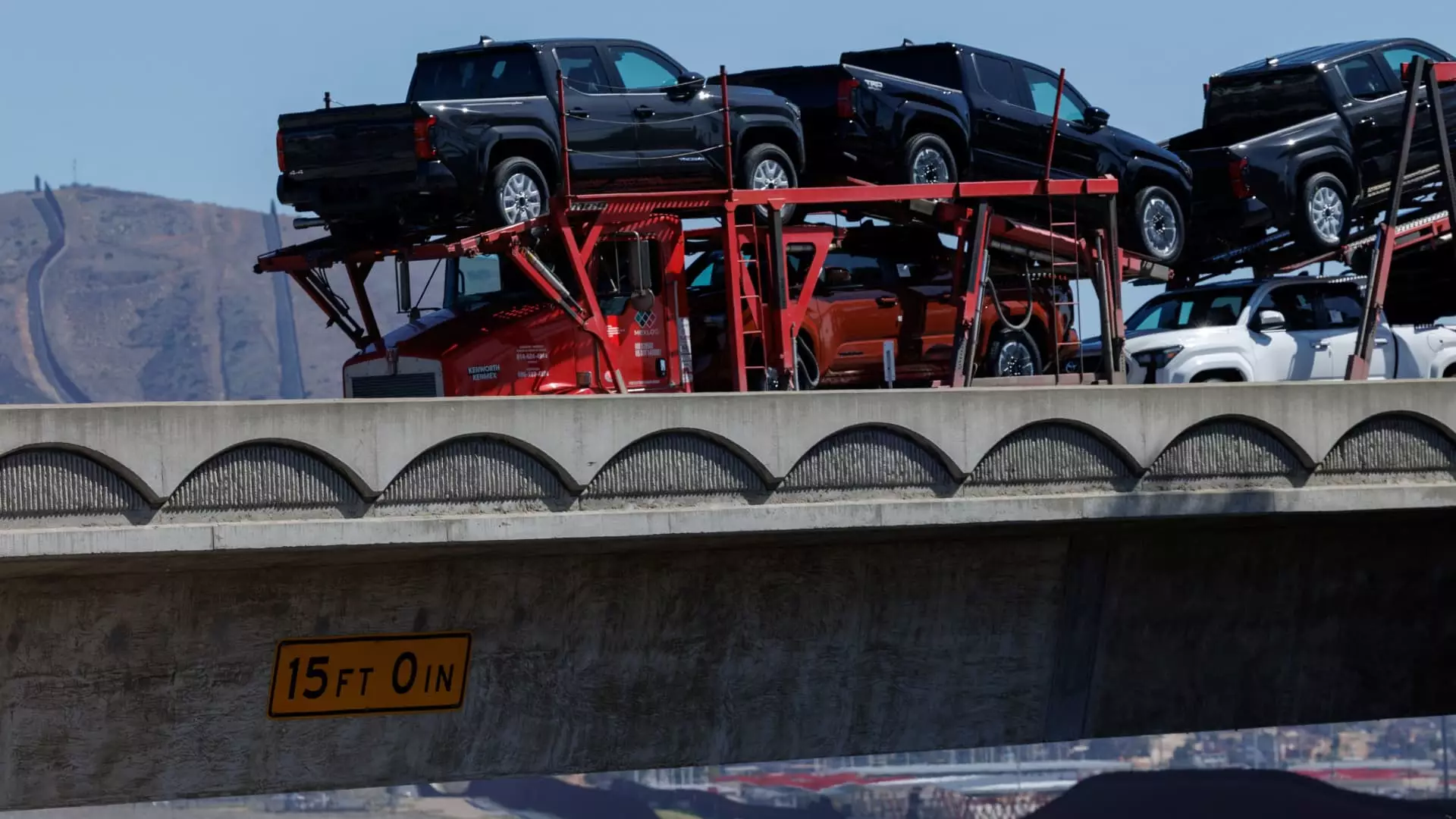President Donald Trump’s recent declaration regarding a 25% tariff on all cars not manufactured in the United States is expected to send shockwaves throughout the automotive industry. While intended as a strategy to stimulate domestic production and protect American jobs, the implications of such a move are far more intricate and troubling. Unlike the simplistic notion of preserving jobs, the ramifications of these tariffs may lead to higher consumer costs, potential job losses in the long run, and a stifling of innovation, revealing a mixed bag of consequences that require serious scrutiny.
Economic Implications: A Pricey Toll on the Consumer
The most immediate concern arising from Trump’s tariffs is the significant impact on vehicle prices. Analysts at Goldman Sachs have warned that this 25% tariff could escalate the cost of imported vehicles by as much as $15,000. Even U.S. manufactured vehicles, which contain a substantial number of non-U.S. components, may see price hikes of $3,000 to $8,000 based on the tariffs applied to foreign parts. Such inflationary pressures on vehicle pricing could deter potential buyers, leading to decreased sales and ultimately harming the very workers the tariffs are intended to protect.
Higher vehicle prices will also have implications not only for consumers but also for dealerships and lower-income families. A middle-class family is likely reconsidering their choices in an environment where a simple car purchase could incur thousands of dollars in extra costs. As a result, the tariffs may disproportionately affect low-income individuals who find the burden of a new vehicle too great to bear.
The Fallacy of Job Preservation
One of the most alluring arguments in favor of Trump’s tariffs is the notion that they will safeguard American jobs, specifically in the automotive sector. However, the narrative is far more complex. As Shawn Fain, president of the United Auto Workers (UAW), lauded the tariffs as a boon for blue-collar jobs, a significant oversight remains: many auto companies, including General Motors, have substantial exposure to international markets, particularly Mexico. This raises the question of whether these tariffs will genuinely lead to job creation or if they will merely drive companies to reshape their supply chains disruptive to existing jobs.
With high tariffs imposing considerable costs on manufacturers, there’s an inherent risk that companies will seek to cut costs by automating processes or shifting operations abroad, further jeopardizing American workers instead of benefiting them. The irony of attempting to save U.S. jobs by making them less viable through punitive tariffs is hard to overlook.
A Complex Supply Chain: Tariffs vs. Reality
The mechanics of modern automotive manufacturing are characterized by intricate global supply chains. Each vehicle is a composite of approximately 20,000 parts sourced from over a hundred countries. The implications of introducing tariffs on these components cannot be overstated. A significant percentage of parts for vehicles assembled in the U.S. are actually sourced from countries outside its borders. Thus, the assumption that a straightforward tariff will boost domestic manufacturing is overly simplistic.
The current tariffs also exempt auto parts compliant with the United States-Mexico-Canada Agreement until further guidelines emerge. This patchwork approach raises uncertainty among manufacturers, who rely on consistency in supply and pricing to function efficiently. As companies grapple with fluctuating costs and supply disruptions, the risk of significant operational setbacks looms larger.
Future Innovation: Chilling Effects on Research and Development
Beyond immediate economic repercussions, the introduction of tariffs fosters a broader fear of stagnation in innovation within the auto industry. With companies possibly forced to divert resources toward adapting to new tariffs and grappling with higher production costs, less capital will be available for research and development. This slowdown in innovation affects not just product quality but also advancements toward electrical vehicle technology, sustainable practices, and the transition to autonomous driving.
The auto industry stands on the precipice of a major shift toward greener technologies. However, the prospect of escalating tariffs may rob companies of their competitive edge in the global market, ultimately leading to a decline in both American prowess and technological evolution.
A Seneca Cliff Ahead for the Automotive Industry?
Trump’s tariffs may resonate positively with some as a step toward improving U.S. manufacturing, but the potential fallout is severe. From surging consumer prices to reduced job stability and atmospheric risks to innovation, the complexities surrounding the automotive industry cannot be overlooked. As we survey these developments, it is essential to remain skeptical about the touted benefits of such tariffs while evaluating the hidden costs that could chill economic progress and undermine the future of American manufacturing.

